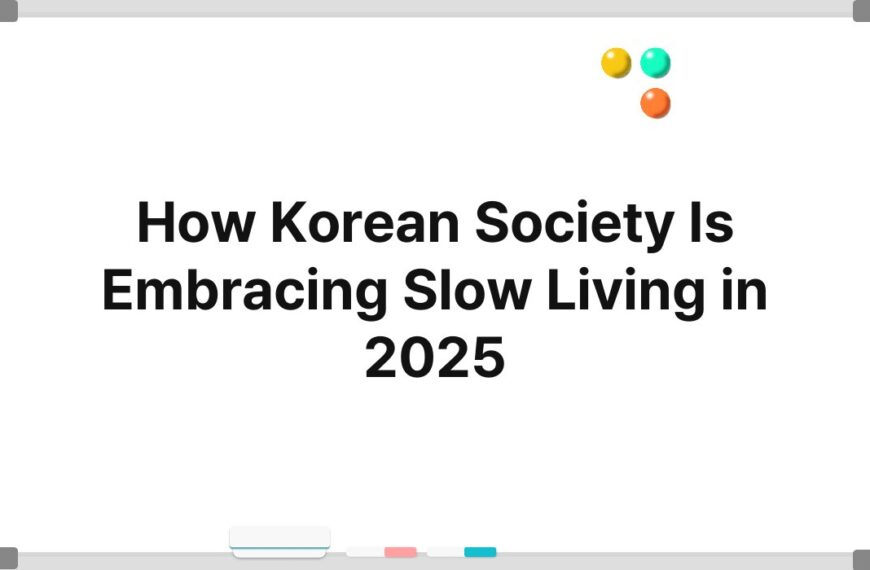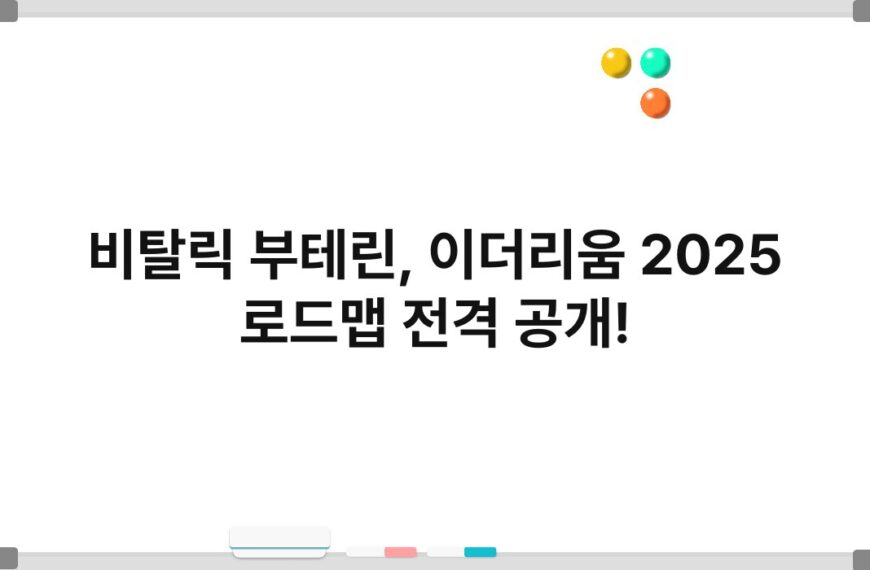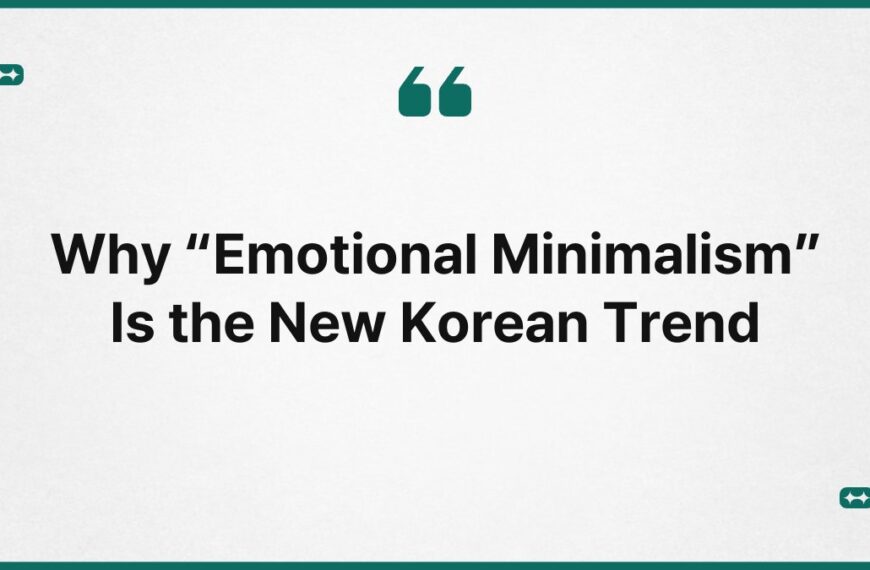[K-Bridge/Samuel] K-Pop lyrics often serve as a cultural mirror, reflecting the complexities of South Korean society while resonating with global audiences.
Beneath their catchy melodies and vibrant performances lie profound messages that explore themes such as love, identity, and societal pressures.
These hidden meanings can reveal insights into the values and struggles of modern life in Korea, offering listeners a deeper understanding of the culture.
Through an analysis of specific songs, we can uncover the layers of cultural significance embedded within K-Pop lyrics.
This article will illuminate how these songs convey messages of resilience, social commentary, and emotional depth, enriching our appreciation of K-Pop as a cultural phenomenon.
K-Pop Lyrics with Hidden Cultural Meaning: The Influence of Modern Korean Society
The Role of Individualism in K-Pop Lyrics
K-Pop has significantly evolved to embrace the theme of individualism, reflecting a shift in societal values.
The lyrics often celebrate personal freedom and self-expression, contrasting with traditional collectivist ideals.
This evolution is particularly evident in songs that encourage listeners to pursue their dreams and assert their identities.
By focusing on individual narratives, K-Pop artists resonate with a younger audience that seeks validation of their unique experiences.
In the context of South Korean society, where conformity has long been the norm, these lyrics challenge listeners to break free from societal expectations.
The celebration of individuality can be seen as a response to the pressures of academic and professional success that dominate Korean life.
K-Pop songs often portray characters who embrace their true selves, encouraging fans to do the same.
This shift not only empowers individuals but also fosters a sense of community among those who share similar struggles.
Moreover, the emphasis on personal stories in K-Pop lyrics allows for a broader exploration of identity.
Artists often share their own journeys, addressing issues such as mental health, self-acceptance, and the quest for happiness.
By doing so, they create a relatable narrative that resonates with fans, allowing them to find solace in shared experiences.
This connection between artists and listeners highlights the power of K-Pop as a medium for expressing the complexities of modern life.
The Reflection of Societal Pressures in K-Pop Lyrics
K-Pop lyrics frequently delve into the societal pressures faced by individuals, particularly youth.
Themes of anxiety, depression, and the pursuit of perfection are prevalent, reflecting the harsh realities of contemporary Korean society.
Many songs depict the struggles of balancing personal desires with societal expectations, capturing the emotional turmoil experienced by many young people.
This candid portrayal of mental health issues is a significant departure from traditional narratives that often stigmatize such discussions.
The pressure to succeed academically and socially can lead to feelings of inadequacy, which K-Pop artists poignantly express in their lyrics.
Songs that address these themes resonate deeply with fans who may feel overwhelmed by similar pressures.
By acknowledging these struggles, artists create a space for dialogue about mental health, encouraging listeners to seek help and support.
This shift in narrative not only normalizes conversations about mental health but also fosters a sense of solidarity among fans.
Additionally, K-Pop lyrics often serve as a critique of societal standards, challenging the notion of perfection that pervades Korean culture.
Artists use their platforms to advocate for authenticity, urging listeners to embrace their flaws and imperfections.
This message is particularly powerful in a society that often equates success with unattainable ideals.
By promoting self-acceptance and resilience, K-Pop artists inspire fans to redefine their understanding of success.
The Exploration of Love and Relationships in K-Pop Lyrics
Love and relationships are central themes in K-Pop lyrics, often explored through various lenses that reflect societal norms and expectations.
Many songs depict the complexities of romantic relationships, highlighting the joys and challenges faced by couples.
This exploration is particularly relevant in a culture where love is often intertwined with social status and familial expectations.
K-Pop songs frequently portray the idealization of love, capturing the excitement and passion that accompany romantic relationships.
However, they also address the darker aspects of love, such as heartbreak and betrayal.
This duality allows listeners to connect with the emotional depth of the lyrics, as they navigate their own experiences in love.
By portraying a range of emotions, K-Pop artists create a relatable narrative that resonates with fans of all ages.
Moreover, the representation of love in K-Pop often challenges traditional gender roles and expectations.
Many songs depict strong, independent characters who assert their desires and agency within relationships.
This shift reflects a broader societal movement toward gender equality and empowerment, encouraging listeners to embrace progressive values.
By redefining love and relationships, K-Pop artists contribute to a cultural conversation about the evolving dynamics of romance in contemporary society.
K-Pop Lyrics with Hidden Cultural Meaning: The Impact of Globalization
The Globalization of K-Pop and Its Cultural Implications
The globalization of K-Pop has significantly impacted the genre, allowing it to transcend cultural boundaries and reach a diverse audience.
This phenomenon has led to a fusion of musical styles and cultural influences, enriching the lyrical content of K-Pop songs.
As artists draw inspiration from various cultures, they create a unique blend of sounds that reflects the interconnectedness of the modern world.
The lyrics of K-Pop songs often incorporate English phrases and references, making them accessible to international audiences.
This linguistic blending not only enhances the global appeal of K-Pop but also serves as a bridge between cultures.
By embracing diverse influences, K-Pop artists foster a sense of cultural exchange, encouraging listeners to explore different perspectives and experiences.
This exchange enriches the understanding of K-Pop as a cultural phenomenon that transcends geographical boundaries.
Additionally, the global success of K-Pop has prompted discussions about cultural appropriation and representation.
As artists gain international recognition, they must navigate the complexities of portraying their culture authentically while appealing to a global audience.
This challenge highlights the importance of cultural sensitivity and understanding in the music industry.
K-Pop artists strive to maintain their cultural identity while embracing the opportunities presented by globalization, creating a dynamic and evolving genre.
The Influence of Social Media on K-Pop Lyrics
Social media has transformed the way K-Pop artists connect with their fans, significantly influencing the content and themes of their lyrics.
Platforms such as Twitter, Instagram, and TikTok allow artists to engage directly with their audience, shaping their creative output in response to fan feedback.
This interaction fosters a sense of community and belonging, as fans feel more connected to the artists they admire.
The immediacy of social media also impacts the lyrical content of K-Pop songs.
Artists often address current events and social issues, reflecting the concerns and interests of their fanbase.
This responsiveness allows K-Pop lyrics to remain relevant and relatable, as they tackle topics that resonate with listeners.
By incorporating contemporary themes, K-Pop artists create a dialogue with their audience, encouraging them to engage with the music on a deeper level.
Furthermore, social media serves as a platform for fans to share their interpretations of K-Pop lyrics, fostering a culture of analysis and discussion.
This engagement allows for diverse perspectives on the meaning of songs, enriching the overall understanding of K-Pop as a cultural phenomenon.
As fans contribute their insights, they create a collaborative environment that celebrates the complexities of the music and its messages.
The Role of Music Videos in Enhancing K-Pop Lyrics
Music videos play a crucial role in amplifying the messages conveyed through K-Pop lyrics.
The visual storytelling in these videos enhances the emotional impact of the songs, allowing viewers to engage with the narrative on multiple levels.
Through carefully crafted visuals, K-Pop artists bring their lyrics to life, creating a rich and immersive experience for fans.
The symbolism and imagery used in K-Pop music videos often reflect the themes present in the lyrics.
For instance, a song addressing themes of self-acceptance may feature visuals that showcase transformation and empowerment.
This alignment between lyrics and visuals creates a cohesive narrative that resonates with viewers, deepening their connection to the music.
By employing visual metaphors, K-Pop artists invite fans to explore the underlying meanings within their songs.
Moreover, music videos serve as a platform for cultural expression, showcasing elements of Korean culture and aesthetics.
From fashion to dance, these visuals highlight the vibrancy of Korean culture while appealing to a global audience.
This cultural representation fosters a greater appreciation for the nuances of Korean society, allowing viewers to engage with the music on a cultural level.
By blending music and visuals, K-Pop artists create a powerful medium for conveying messages that transcend language barriers.
K-Pop Lyrics with Hidden Cultural Meaning: The Intersection of Tradition and Modernity
The Influence of Traditional Korean Culture in K-Pop Lyrics
K-Pop lyrics often draw inspiration from traditional Korean culture, weaving elements of history and folklore into contemporary themes.
This fusion of old and new creates a rich tapestry that reflects the complexities of modern Korean identity.
By incorporating traditional motifs, K-Pop artists pay homage to their cultural heritage while appealing to a global audience.
Many K-Pop songs reference historical figures, legends, or cultural practices, inviting listeners to explore the depths of Korean history.
This connection to tradition enhances the lyrical content, providing a sense of continuity and belonging.
By celebrating their cultural roots, K-Pop artists foster a sense of pride among fans, encouraging them to embrace their heritage in a rapidly changing world.
Furthermore, the incorporation of traditional instruments and musical styles into K-Pop songs enriches the overall sound.
This blending of genres creates a unique auditory experience that captivates listeners while honoring Korean musical traditions.
By bridging the gap between tradition and modernity, K-Pop artists create a genre that resonates with both local and international audiences, fostering a greater appreciation for Korean culture.
The Impact of Modernity on K-Pop Lyrics
As K-Pop continues to evolve, the influence of modernity shapes the themes and narratives present in its lyrics.
The rapid pace of societal change in South Korea has led to a re-examination of traditional values and beliefs.
K-Pop artists often reflect this shift, addressing contemporary issues such as technology, globalization, and shifting gender roles in their songs.
The lyrics of K-Pop songs frequently explore the impact of technology on personal relationships and identity.
As social media and digital communication become increasingly prevalent, artists examine the complexities of modern love and connection.
This exploration of technology’s role in shaping human experiences resonates with fans who navigate similar challenges in their own lives.
Moreover, K-Pop lyrics often challenge traditional gender norms, promoting messages of empowerment and equality.
Female artists, in particular, use their platforms to assert their agency and redefine societal expectations.
By addressing issues of gender and identity, K-Pop artists contribute to a broader cultural conversation about the evolving roles of individuals in modern society.
The Balance Between Tradition and Modernity in K-Pop Lyrics
The interplay between tradition and modernity is a defining characteristic of K-Pop lyrics, reflecting the complexities of contemporary Korean identity.
Artists navigate this balance by incorporating elements of their cultural heritage while embracing modern themes and influences.
This duality allows K-Pop to resonate with a diverse audience, bridging the gap between generations.
Many K-Pop songs celebrate traditional values such as family, respect, and community while simultaneously addressing contemporary issues.
This fusion creates a nuanced narrative that speaks to the experiences of individuals living in a rapidly changing society.
By honoring their roots while embracing modernity, K-Pop artists create a genre that is both relevant and timeless.
Furthermore, the balance between tradition and modernity fosters a sense of cultural pride among fans.
As K-Pop artists showcase their heritage through their music, they invite listeners to engage with and appreciate the richness of Korean culture.
This celebration of identity empowers fans to embrace their own narratives, creating a sense of belonging in a globalized world.
K-Pop Lyrics with Hidden Cultural Meaning: The Journey of Self-Discovery
The Theme of Self-Discovery in K-Pop Lyrics
K-Pop lyrics often explore the theme of self-discovery, resonating with listeners who embark on their own journeys of personal growth.
Many songs depict characters grappling with their identities, reflecting the universal struggle to understand oneself.
This exploration of self-discovery is particularly relevant in a society where conformity often overshadows individuality.
Artists frequently share their personal experiences through their lyrics, creating a relatable narrative that resonates with fans.
By addressing themes of self-acceptance, resilience, and empowerment, K-Pop songs inspire listeners to embrace their true selves.
This message is particularly powerful for young people navigating the complexities of identity in a rapidly changing world.
Furthermore, K-Pop artists often encourage fans to reflect on their own journeys, fostering a sense of connection and understanding.
The candid portrayal of struggles and triumphs allows listeners to feel seen and validated in their experiences.
By promoting self-discovery, K-Pop artists create a supportive environment that empowers fans to embrace their uniqueness.
The Role of Resilience in K-Pop Lyrics
Resilience is a recurring theme in K-Pop lyrics, highlighting the importance of perseverance in the face of adversity.
Many songs depict characters overcoming challenges and obstacles, inspiring listeners to remain steadfast in their pursuits.
This message of resilience resonates deeply with fans who may face their own struggles in life.
K-Pop artists often share their personal stories of hardship, emphasizing the importance of resilience in their journeys.
By addressing themes of failure, rejection, and growth, they create a narrative that encourages fans to embrace their challenges.
This focus on resilience not only empowers listeners but also fosters a sense of community among those who share similar experiences.
Moreover, the portrayal of resilience in K-Pop lyrics serves as a reminder that setbacks are a natural part of life.
Artists encourage fans to view challenges as opportunities for growth, promoting a positive mindset in the face of adversity.
By embracing resilience, K-Pop artists inspire listeners to navigate their own journeys with courage and determination.
The Celebration of Authenticity in K-Pop Lyrics
Authenticity is a central theme in K-Pop lyrics, as artists encourage listeners to embrace their true selves.
Many songs promote messages of self-acceptance and individuality, challenging societal expectations of conformity.
This celebration of authenticity resonates with fans who seek validation of their unique identities.
K-Pop artists often share their personal struggles with self-acceptance, creating a relatable narrative that inspires fans to embrace their flaws.
By portraying vulnerability and honesty in their lyrics, they foster a sense of connection with listeners.
This emphasis on authenticity not only empowers individuals but also encourages a culture of acceptance and understanding.
Furthermore, the celebration of authenticity in K-Pop lyrics challenges traditional notions of beauty and success.
Artists promote diverse representations of identity, encouraging fans to embrace their uniqueness in a world that often prioritizes conformity.
By redefining standards of beauty and success, K-Pop artists inspire listeners to celebrate their individuality and find strength in their differences.
K-Pop Lyrics with Hidden Cultural Meaning: The Future of K-Pop
The Evolution of K-Pop Lyrics in a Global Context
As K-Pop continues to evolve, the lyrical content reflects the changing dynamics of a globalized world.
Artists are increasingly addressing universal themes that resonate with audiences beyond South Korea, fostering a sense of connection among diverse listeners.
This evolution highlights the genre’s adaptability and relevance in an ever-changing cultural landscape.
The incorporation of diverse musical styles and influences allows K-Pop artists to experiment with new sounds while maintaining their cultural identity.
This fusion of genres not only enriches the lyrical content but also broadens the appeal of K-Pop to international audiences.
By embracing global influences, K-Pop artists create a dynamic and evolving genre that resonates with listeners from various backgrounds.
Moreover, the future of K-Pop lyrics lies in the continued exploration of social issues and cultural narratives.
As artists engage with contemporary themes, they contribute to a broader cultural conversation about identity, mental health, and societal challenges.
This commitment to addressing relevant issues ensures that K-Pop remains a powerful medium for self-expression and cultural commentary.
The Role of Fan Engagement in Shaping K-Pop Lyrics
Fan engagement plays a crucial role in shaping the lyrical content of K-Pop songs.
As artists connect with their audience through social media and live performances, they gain insights into the interests and concerns of their fans.
This interaction fosters a collaborative environment where fans feel empowered to influence the music they love.
K-Pop artists often draw inspiration from fan feedback, incorporating themes and messages that resonate with their audience.
This responsiveness not only enhances the relevance of K-Pop lyrics but also strengthens the bond between artists and fans.
By valuing fan input, K-Pop artists create a sense of community that celebrates shared experiences and emotions.
Furthermore, the active involvement of fans in the creative process encourages a culture of collaboration and support.
As fans share their interpretations of lyrics and engage in discussions, they contribute to a richer understanding of K-Pop as a cultural phenomenon.
This collaborative spirit fosters a sense of belonging among fans, empowering them to connect with the music on a deeper level.
The Potential for K-Pop to Influence Global Culture
K-Pop has the potential to significantly influence global culture, transcending language barriers and cultural boundaries.
As the genre continues to gain popularity worldwide, it serves as a platform for cultural exchange and understanding.
The impact of K-Pop lyrics extends beyond entertainment, fostering conversations about identity, mental health, and societal issues.
As K-Pop artists address relevant themes in their lyrics, they contribute to a broader cultural dialogue that resonates with audiences around the world.
This engagement encourages listeners to reflect on their own experiences and challenges, promoting a sense of empathy and understanding.
By addressing universal themes, K-Pop has the power to bridge cultural divides and foster connections among diverse audiences.
Moreover, the global success of K-Pop presents opportunities for cultural representation and visibility.
As artists showcase their heritage through their music, they invite listeners to engage with and appreciate the richness of Korean culture.
This celebration of diversity fosters a greater understanding of cultural nuances, empowering fans to embrace their own identities in a globalized world.
Through the exploration of K-Pop lyrics with hidden cultural meanings, we gain valuable insights into the complexities of modern Korean society.
By addressing themes of individualism, societal pressures, love, self-discovery, and cultural exchange, K-Pop artists create a rich tapestry of narratives that resonate with audiences worldwide.
As the genre continues to evolve, it holds the potential to shape cultural conversations and foster connections among diverse communities.
The journey through K-Pop lyrics reveals not only the artistry of the music but also the profound messages that speak to the human experience.








